Roger KammCecil and Ida Green Distinguished Professor of Biological and Mechanical Engineering, Massachusetts Institute of Technology (MIT)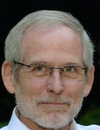 Kamm is currently the Cecil and Ida Green Distinguished Professor of Biological and Mechanical Engineering at MIT, where he has served on the faculty since 1978. Kamm has long been instrumental in developing research activities at the interface of biology and mechanics, formerly in cell and molecular mechanics, and now in engineered living systems. Current interests are in developing models of healthy and diseased organ function using microfluidic technologies, with a focus on vascularization. Kamm has fostered biomechanics as Chair of the US National Committee on Biomechanics (2006-2009) and of the World Council on Biomechanics (2006-2010). Kamm currently directs the NSF Science and Technology Center on Emergent Behaviors of Integrated Cellular Systems. He is the 2010 recipient of the ASME Lissner Medal (American Society of Mechanical Engineering) and the 2015 recipient of the Huiskes Medal (European Society of Biomechanics), both for lifetime achievements, and is the inaugural recipient of the ASME Nerem Medal for mentoring and education. He was elected to the National Academy of Medicine in 2010. Kamm is co-founder of two companies, Cardiovascular Technologies and AIM Biotech, a manufacturer of microfluidic systems for 3D culture. |
Shulamit LevenbergProfessor and Dean, Faculty of Biomedical Engineering, Technion Israel Institute of Technology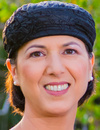 Professor Shulamit Levenberg is the elected Dean of the Biomedical Engineering Department at the Technion. She also serves as the director of the Technion Center for 3D Bioprinting and The Rina & Avner Schneur Center for Diabetes Research. Prof Levenberg earned her PhD at the Weizmann Institute of Science, where she focused on cell adhesion dynamics and signaling, and pursued her post-doctoral research in tissue engineering at MIT, in the lab of Professor Robert Langer. In 2004, she joined the Technion Faculty of Biomedical Engineering where she conducts interdisciplinary research on stem cells and tissue engineering. She spent a sabbatical year (2011-2012) as a visiting professor at the Wyss Institute for Biology Inspired Engineering at Harvard University and a summer sabbatical (2017) at the University of Western Australia as a winner of the Raine Visiting Professor Award. Prof Levenberg received the Krill Prize for excellence in scientific research, awarded by the Wolf Foundation, and was named by Scientific American as a “Research Leader” in tissue engineering, for her seminal work on vascularization of engineered tissues. She also received the France-Israel Foundation Prize, the Italian Excellence for Israel Prize, the Teva Research Prize and the Juludan Prize. In 2018, she received the Rappaport Prize for Biomedical Sciences. Levenberg has authored over 100 publications, and presented her work in over 100 international conferences as an invited or keynote speaker. She is founder and CSO of two start-up companies in the areas of cultured meat and nanoliter arrays for rapid antimicrobial susceptibility testing. She is a member of the Israel National Counsel for Bioethics and is actively involved in training young scientists. |
Aleksandr OvsianikovProfessor, Head of Research Group 3D Printing and Biofabrication, Technische Universität Wien (TU Wien)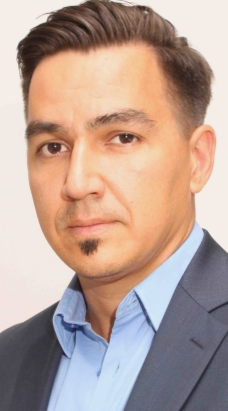 Dr. Ovsianikov is a full Professor and a head of the group “3D Printing and Biofabrication” at the TU Wien (Vienna, Austria). His research is dealing with the use of additive manufacturing technologies for tissue engineering and regenerative medicine. Dr. Ovsianikov has background in laser physics and material processing with femtosecond lasers. A particular focus his current research is establishing multiphoton lithography in the domain of biofabrication for engineering of biomimetic 3D cell culture matrices and realization of novel tissue engineering scaffolds. Dr. Ovsianikov was awarded a prestigious Starting Grant in 2012 and a Consolidator Grant in 2017 from the European Research Council (ERC) for projects aimed at these topics. Together with Prof. Mironov and Prof. Yoo he is an editor of a living book project “3D Printing and Biofabrication” published by Springer in cooperation with Tissue Engineering and Regenerative Medicine International Society (TERMIS). |
Mehmet TonerHelen Andrus Benedict Professor of Biomedical Engineering, Massachusetts General Hospital (MGH), Harvard Medical School, and Harvard-MIT Division of Health Sciences and Technology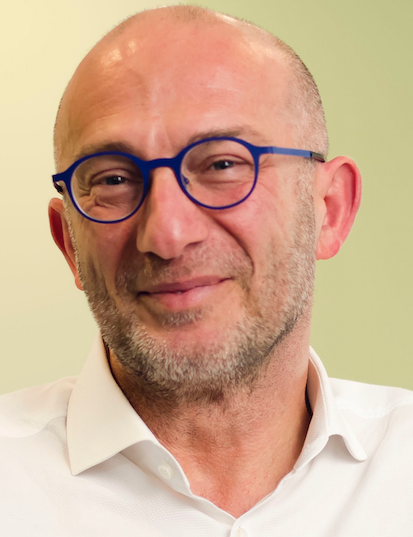 Mehmet Toner is the Helen Andrus Benedict Professor of Biomedical Engineering at the Massachusetts General Hospital (MGH), Harvard Medical School, and Harvard-MIT Division of Health Sciences and Technology. Mehmet received a BS degree from Istanbul Technical University and an MS degree from the Massachusetts Institute of Technology (MIT), both in Mechanical Engineering. Subsequently he completed his PhD degree in Medical Engineering at Harvard-MIT Division of Health Sciences and Technology in 1989. Mehmet is the co-founding Director of the Center for Engineering in Medicine, and BioMicroElectroMechanical Systems Resource Center (BMRC) at the MGH. He is also the Director of Research at the Shriners Hospital for Children Boston. Mehmet holds over 50 patents, has more than 350 publications, and is a co-founder of multiple biotechnology start-ups. Mehmet is a “Fellow of the American Institute of Medical and Biological Engineering”, “Fellow of the American Society of Mechanical Engineers”, and “Fellow of the Society for Cryobiology.” In 2012, he was given the “Luyet Medal” by the Society for Cryobiology. In 2013, he received the “H.R. Lissner Medal” from the American Society of Mechanical Engineering. He is a member of the “National Academy of Inventors” and a member of the “National Academy of Engineering.” |
M. Selim ÜnlüDistinguished Professor of Engineering, Department of Electrical and Computer Engineering, Boston University M. Selim Ünlü received the B.S. degree from the Middle East Technical University, Ankara, Turkey, in 1986, and the M.S.E.E. (1988) and Ph.D. (1992) degrees from the University of Illinois at Urbana-Champaign, all in electrical engineering. Since 1992, he has been a professor at Boston University. He is currently a Distinguished Professor of Engineering appointed in electrical and computer engineering, biomedical engineering, physics, materials science and engineering, and graduate medical sciences. He has also served as the Associate Dean for Research and Graduate Programs in engineering. His research interests are in the areas of nanophotonics and biophotonics focusing on high-resolution solid immersion lens microscopy of integrated circuits and development of biological detection and imaging techniques, particularly in high-throughput digital biosensors based on detection of individual biological nanoparticles, viruses, and single molecule counting. |
David WeitzMallinckrodt Professor of Physics and Applied Physics, Director of the Materials Research Science and Engineering Center, Harvard University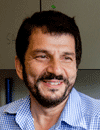 Professor David Weitz received his PhD from Harvard. He worked at Exxon Research and Engineering as a research physicist for nearly 18 years, and then became a Professor of Physics at the University of Pennsylvania. He moved to Harvard at the end of the last century, and is currently Professor of Physics and Applied Physics. He is also the director of Harvard's Materials Research Science and Engineering Center. Several start-up companies have come from his lab to exploit some of the technological applications of his work. |
Joyce WongProfessor of Biomedical Engineering and Materials Science & Engineering, Boston University Dr. Joyce Y. Wong is a Professor of Biomedical Engineering and Materials Science & Engineering at Boston University. She is a Fellow of the National Academy of Inventors (NAI), American Association for the Advancement of Science (AAAS), American Institute of Medical and Biological Engineering (AIMBE), and the Biomedical Engineering Society (BMES). Her research is in the area of developing biomaterials for the early detection and treatment of disease. Her current projects include pediatric bioengineered blood vessel patches, ultrasound contrast agents to detect and treat abdominal surgical adhesions, and biomaterials for reproductive health. She has published over 100 peer-reviewed publications, 11 pending or issued patents, a graduate of the NSF Innovation-CORPS program, and has mentored over 100 trainees. In 2017 she received the Charles DeLisi Distinguished Lecture and Award, the highest honor in Boston University’s College of Engineering. She is on the editorial board of several journals and in 2017 was a Volume Organizer for the Materials Research Society Bulletin. She is an Associate Editor of the journal Drug Delivery and Translational Research. In 2014, as the Inaugural Director of a Boston University Provost Initiative promoting women in STEM at all levels, she launched ARROWS (Advance, Recruit, Retain & Organize Women in STEM). In 2018, she received the Advocate of the Year AWARD from BU GWISE (Graduate Women in Science and Engineering). In 2019, she led the BU team in receiving an AAAS SEA (STEM Equity Achievement) Change Bronze Award. She most recently became Director of Outreach for BU’s NASA-funded SHIELD DRIVE Science Center. She is currently Chair of College of Fellows for AIMBE. In 2020, she received the Clemson Award for Basic Research from the Society for Biomaterials. |




